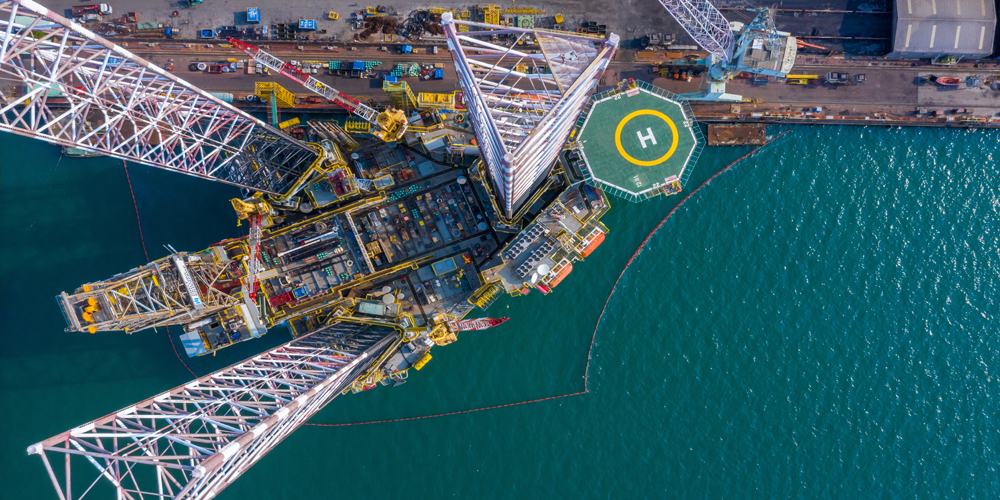
Navigating the Offshore Industry: A Deep Dive into Recruitment, Challenges, and Future Trends
The offshore industry, characterised by its operations beyond the shores, is a vital sector powering global economies through activities like oil and gas exploration, renewable energy generation, and maritime trade.
This expansive domain encompasses a myriad of sub-sectors, including offshore drilling, wind farms, subsea construction, and marine transportation, each with its unique set of challenges and opportunities. In this comprehensive exploration, we delve into the intricate landscape of the offshore industry, with a particular focus on recruitment and the offshore world, the backbone of its workforce dynamics.
The Offshore Industry: A Global Overview
The offshore industry spans vast expanses of the world’s oceans, from the North Sea to the Gulf of Mexico, and from the South China Sea to the waters off Australia’s coast. Its significance lies not only in its contribution to energy production but also in its role as a facilitator of global trade and connectivity.
One of the primary sectors within the offshore industry is offshore oil and gas exploration and production. Platforms, both fixed and floating, dot the seas, serving as hubs for drilling operations and extraction activities. These installations require skilled personnel ranging from engineers and technicians to riggers and safety officers, forming the backbone of the offshore workforce.
Another burgeoning segment is offshore wind energy. With the growing emphasis on renewable sources of energy, offshore wind farms have emerged as key contributors to the global energy mix. These projects demand a diverse array of talent, from wind turbine technicians to project managers adept at navigating complex marine environments.
Additionally, the offshore industry encompasses marine transportation, subsea engineering, and underwater construction, each requiring specialized skills and expertise. From laying undersea pipelines to constructing offshore infrastructure, these endeavors rely on a skilled workforce to execute projects efficiently and safely.
Recruitment in the Offshore Industry: Challenges and Strategies
Recruiting for the offshore industry presents a unique set of challenges owing to the demanding nature of the work, remote locations, and stringent safety requirements. Moreover, fluctuations in oil prices, regulatory changes, and technological advancements further compound the recruitment landscape.
Skills Shortages: One of the perennial challenges facing the offshore industry is the shortage of skilled personnel. As older workers retire and new technologies emerge, there is a constant need to attract and retain talent with the requisite expertise. Specialised roles such as offshore engineers, ROV (Remotely Operated Vehicle) operators, and marine electricians are particularly in demand but often in short supply.
Safety and Training: Safety is paramount in the offshore industry, given the hazardous nature of the work environment. Recruiting individuals who prioritize safety and possess the necessary certifications and training is essential. Employers invest heavily in safety training programs to ensure that their workforce is equipped to handle emergencies and adhere to strict safety protocols.
Remote Work Challenges: Offshore assignments often entail extended periods away from home, working in isolated environments far from civilization. Recruiting individuals who are willing to endure the rigors of offshore life while maintaining high levels of productivity and morale is a significant challenge. Employers may offer competitive compensation packages and incentives to attract and retain talent in such circumstances.
Regulatory Compliance: The offshore industry is subject to stringent regulations governing safety, environmental protection, and labor practices. Recruiting individuals who are well-versed in regulatory compliance and possess a strong commitment to upholding industry standards is imperative. Compliance with regulations such as the International Maritime Organization’s (IMO) conventions and the International Safety Management (ISM) Code is non-negotiable.
Technological Advancements: As the offshore industry embraces digitalization and automation, there is a growing need for talent with expertise in areas such as data analytics, robotics, and remote monitoring systems. Recruiting individuals who are adaptable and technologically savvy is crucial for staying ahead in an increasingly competitive landscape.
To address these recruitment challenges, offshore industry stakeholders employ a variety of strategies:
Strategic Partnerships: Collaborating with educational institutions, training providers, and industry associations to develop tailored programs that equip individuals with the skills needed for offshore roles.
Diverse Recruitment Channels: Leveraging online platforms, job fairs, and recruitment agencies to reach a diverse pool of candidates spanning different geographies and demographics.
Employee Retention Initiatives: Implementing initiatives such as career development programs, performance incentives, and wellness initiatives to foster employee loyalty and reduce turnover rates.
Investment in Training and Development: Offering comprehensive training programs and continuous learning opportunities to enhance the skills and competencies of the workforce, ensuring they remain abreast of industry trends and technological advancements.
Future Trends and Opportunities
Looking ahead, several trends are poised to shape the future of the offshore industry and its recruitment practices:
Renewable Energy Transition: The shift towards renewable energy sources, particularly offshore wind and solar, presents significant opportunities for the offshore industry. As governments worldwide commit to decarbonization goals, there will be a surge in demand for skilled professionals to support offshore renewable projects.
Digitalization and Automation: The integration of digital technologies such as artificial intelligence, machine learning, and Internet of Things (IoT) into offshore operations will revolutionize the industry. Recruitment efforts will focus on attracting talent with expertise in data analytics, cybersecurity, and autonomous systems.
Sustainable Practices: Environmental sustainability will become increasingly important in the offshore industry, driving recruitment of individuals with expertise in eco-friendly technologies, marine conservation, and environmental impact assessment.
Globalization of Talent: With the offshore industry expanding into new regions and markets, there will be greater emphasis on recruiting talent with international experience and cultural competence. Multinational teams will collaborate on projects spanning multiple continents, requiring effective cross-cultural communication and collaboration skills.
Reskilling and Upskilling: As job roles evolve and new technologies emerge, there will be a growing emphasis on reskilling and upskilling the existing workforce to meet evolving demands. Employers will invest in training programs to equip employees with the skills needed for the jobs of the future.
The Offshore Industry & Recruitment
The offshore industry is a dynamic and multifaceted sector that plays a critical role in powering the global economy. Recruitment lies at the heart of its workforce dynamics, with organisations facing a myriad of challenges and opportunities in attracting and retaining talent. By adopting innovative recruitment strategies, embracing technological advancements, and adapting to evolving industry trends, the offshore industry can position itself for sustainable growth and success in the years to come.


